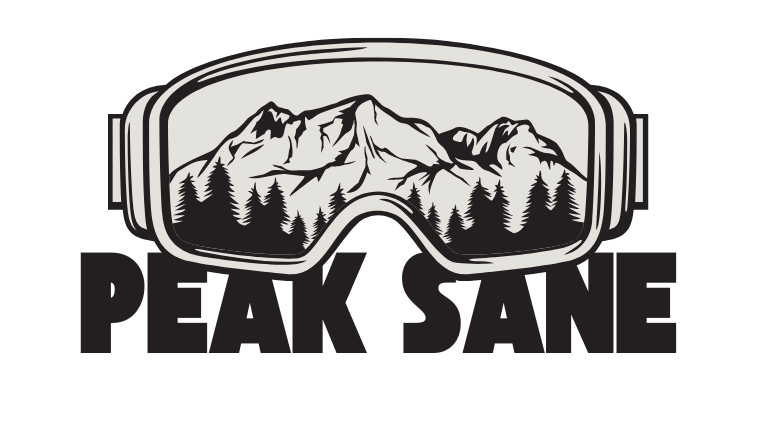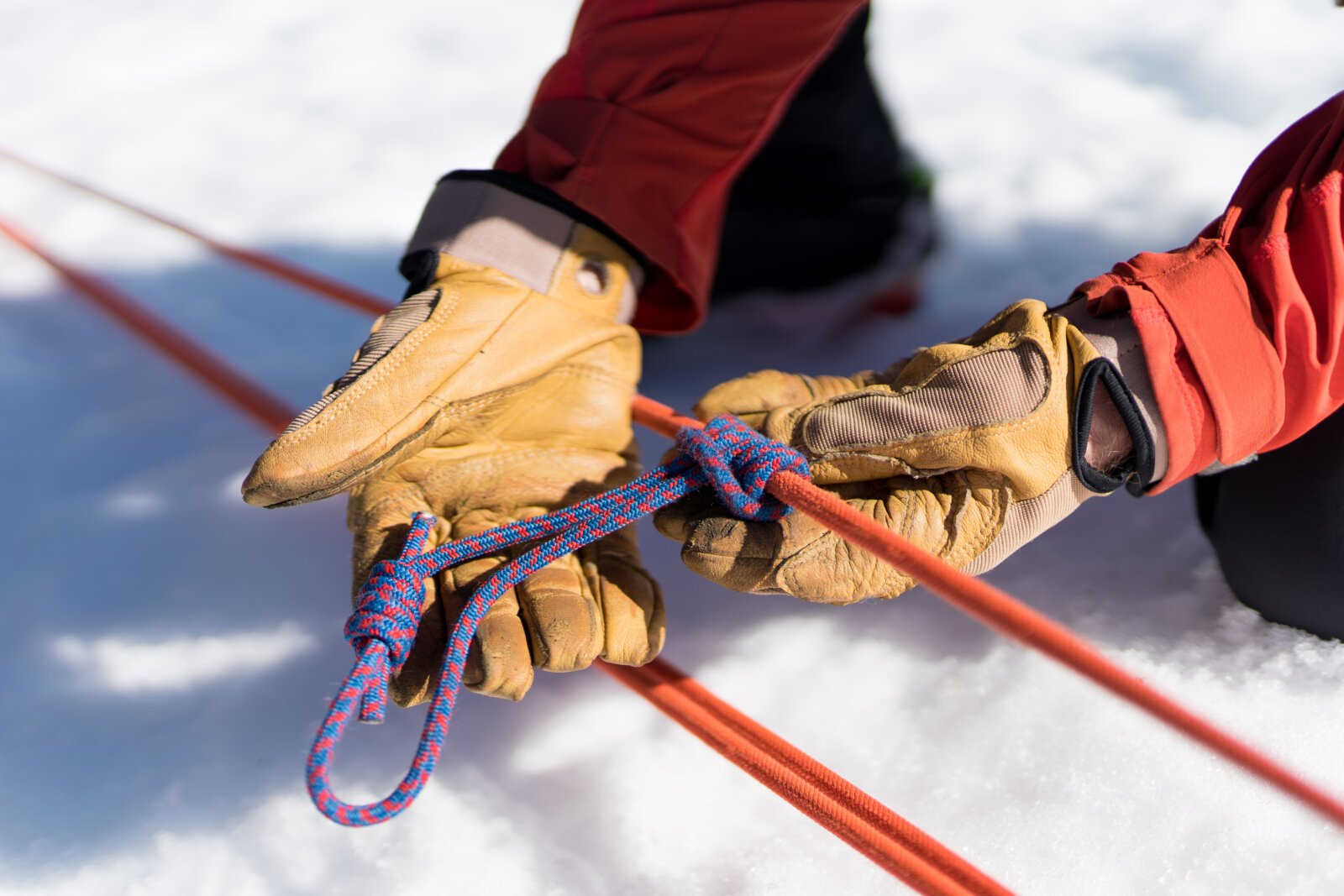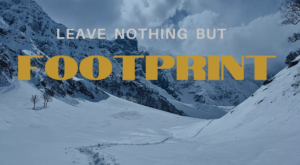Read Also: 33 Best Mountaineering Courses & Certifications To Boost Your Climbing Skills
Mountaineering is an exciting and fulfilling activity, but at the same time it requires proper planning, skill, technique. One thing I have learned with over 20 years of mountaineering experience is the value of having formal training in a mountain course. A good mountaineering course, whether you are an amateur entering into the sport or a climber wishing to upgrade your current skills, can be a game changer.
In this article I am going to share best mountaineering Courses and Certification available today. This Will Not Only Help You grow your skills But Also Develop Confidence In Tackling technical Climbs & Altitude Expeditions. These are training programs ranging from basic alpine climbing skills, to advanced demanded certifications that can have an impact on your ability for mountaineering in general.
Sign-up: Mountaineering Course
Although you can always try and learn the fundamentals by doing, learning from a formal training under experienced instructors still much better. Some of the skills you should learn in a mountaineering course or certification program are:
Health+Safety: Avoiding accidents, dealing with mountain emergencies
Climbing skills: using rope work, belaying, crevasse rescue, ice climbing and glacier traversing.
ORIENITATION Reading maps, compass use and GPS navigation/problem solving in hostile terrain.
Interpreting weather: Know when the mountain is telling you to go home and make plans accordingly.
High-altitude illness and acclimatization. Altitude
How To Work With A Team to stay safe and prepare for Successful Summits;
Whether it is the one of the new climbers looking for instruction to become a better, faster or safer ice climber.
Here are some of the top Mountaineering courses and certifications available:
That is why we have broken down some of the best mountaineering courses and certifications that will get you where you need to be, based on your level of expertise.
1. Mountaineering For Beginners
Best for: Newbies getting into mountaineering practice or learning about it.
If you are new to mountains, it’s a very nice course. These courses will give you an introduction into alpine climbing and a good stepping stone for more advanced skills.
Recommended Courses:
American Alpine Institute Introduction to Mountaineering Course (USA)
The American Alpine Institute (AAI) offers some of the most respected mountaineering programs in North America. Their glacier mountaineering course is at Mount Baker and their advanced alpine mountaineering program takes place in Mt.(rowIndex) Rainier area- two of the most iconic destinations for climbers worldwide!! In just 5 or 6 days you can get started with the basics of glacier travel, self-arresting techniques; Learn how to use crapons, handle an ice axe and do basic crevasse rescue. Ideal for anyone new to alpine climbing.
Alpine Ascents International: 6-Day Mountaineering Course (USA)
One of the best in the States, Alpine Ascents International also runs a 6-day mountaineering location set in the lower 48 – generally Mount Baker or Rainier area. It is a skills based course receiving an adult education university credit, where you learn glacier travel, rope work, crevasse rescue and snow climbing techniques that emphasizes hands-on training and safety.
Alpine Skills Course — Jagged Globe (UK):
You can take a mountaineering course with a company like Jagged Globe, who are based in the UK. Or try their Alpine Skills course in the French Alps perfect for early beginners. You will be taught important skills that include—how to use crampons and ice axe, glacier travel, route planning and climbing basic techniques. The five-day itinerary is ideal for Europe-based mountaineers making their first foray into the similarities and contrasts of the Indian Himalayas.
Key Skills Covered:
How to use basic mountaineering gear (ice axe, crampons).
Glacier travel
Snow climbing techniques
Climbing — Self arrest and crevasse rescue
Talking about simple route finding on navigation
2. Mt. Intermediate Instructing Courses
Ideal for: Climber with a bit of experience looking to take the next step and climb more complicated routes.
After you have a good grasp of fundamentals, intermediate classes are there to up your game. These courses expand the focus to more technical terrain, tying in and climbing on varied alpine rock, snow and ice, complementing the curriculum with more alpine systems content.
Recommended Courses:
Northwest Mountain School — Intermediate Mountaineering Course (USA)
Fields Institute out of Washington state offers a 6-day Intermediate Mountaineering Course through its Northwest Mountain School. Ideal for climbers who seek to move beyond basic skills toward climbing proficiency including multi-pitch climbing, crevasse rescue techniques, travelling around glacial terrain proficiently and making complex decisions regarding one’s safety. The program is typically held on iconic peaks such as Mount Shuksan or Mount Baker.
International School of Mountaineering (ISMM) –Classic Alpine Course, Switzerland
Classic Alpine Course, ISMMThe best way to build on previous summer Scottish experiences, in this respect, is to complete the Classic Alpine Course with ISMM. This workshop is aimed at intermediate-class climbers wishing to enhance their alpine skills while visiting a stepping stone into alpine mountaineering. In six days you will learn to traverse glaciated terrain, advance your technical mixed climbing (rock and ice) skills alongside proficiency with the rope and how to set up systems as you climb to summits in the Swiss Alps.
Mountain Training – Alpine Skills Level 2 (UK & Alps)
Mountain Training is a UK based orgniasation that provides a wide range of mountaineering skills courses. The Level 2 alpine skills program helps intermediate level climbers learn new climbing techniques in this alpine terrain. Subjects of the course include rock and ice climbing, technical terrain navigation and advanced glacier travel with hands-on practice in the Alps.
Key Skills Covered:
Approaches to Multipitch Climbing
Knots, belaying, rappelling
Rescuing someone from a crevasse in more complex terrain
Ice climbing fundamentals
High altitude navigation and Weather interpretation
3. Mountaineering and Technical Climbing (Advanced)
Great for: A climber with enough experience to consider advancing into a technical mountaineering or guiding career.
Advanced Courses and Certifications: For those who have the basics mastered, as well as some intermediate skills, advanced courses and certifications focus on more technical climbs, steep rock, ice or mixed alpine routes. This includes programs in the training of leadership skills for mountain guides.
Recommended Certifications:
American Mountain Guides Association (AMGA) — Alpine Guide Course (USA)
Putting it simply, the AMGA Alpine Guide certification is likely the highest standard a U.S. mountain guide can achieve. The various levels of certification within this professional accreditation cover all facets of alpine guiding includes glacier travel and technical climbing through to client safety and leadership. The certification process is based on a series of courses, assessments, and apprenticeships so it is perfect for someone who is already an accomplished climber looking to break into the field as a professional guide.
Association of Canadian Mountain Guides (ACMG) – It is called as the Alpine Guide Program in Canada.
ACMG: The ACMG offers a rigorous Alpine Guide certification that is as difficult to pass as becoming a mountain guide in Western Europe and this the certification all of our guides strive for if they are based out of Canada or want to get into helping us guide in the Canadian Rockies. The course is challenging and includes advanced climbing techniques, rescue skills, and client care in high-alpine settings. Purpose bumps on experienced climbers aiming to one day lead professionally in Canada.
Mountain Guide qualification awarded by the International Federation of Mountain Guides Associations (IFMGA):
The IFMGA certification is a world standard and the highest level of training available for professional mountain guides. The multi-phase certification process is designed to provide instruction in ski mountaineering, alpine climbing and technical rock and ice climbing. Anyone who graduates from the IFMGA is allowed to lead anywhere in the world.
British Mountaineering Council (BMC) – Winter Mountaineering & Climbing Instructor (WMCI) (UK):
The WMCI is one of the premier qualifications in the UK for those wishing to teach and lead mountaineers. It involves also technical climbing, progressive ropework and mixed alpine climbing in winter. This cert is a pre-requisite for lead winter climbing in the UK and beyond.
Key Skills Covered:
Guiding in Alpine Settings
Stiff mixed (rock and water-ice)
Altitude related rescues & protocol
Planning and Logistics for the Expedition
Attitude of Client care and Leadership ways
4. Ice Course, however is told rather than taught and the main focus has typically been on ice and glacier travel as well as ice climbing.
Best for: Climbers in need of specialised skills training (eg. glacier travel, ice climbing, or rescue)
Professionally designed training courses are perfect for those climbers with solid prior mountaineering experience and who wish to work on focused areas of their climbing. These can range from 1 off programs to integral tiers of a larger certification process.
Recommended Courses:
France – Chamonix Experience Glacier Travel and Crevasse Rescue Course
This special course focuses specifically on glacier travel and crevasse rescue, it is run from the mountaineering mecca of the world: Chamonix. You learn over three days how to travel on glaciers safely, how to set secure anchors and how to execute a crevasse rescue in the real alpine.
Colorado Mountain School — Ice Climbing 101 (USA)
And if you want a lesson in ice climbing, check out the Colorado Mountain School for an intro course. Ice Climbing Skills, Ice & Waterfall Climbing 2 days An introduction and intermediate ice climbing program covering advanced techniques of belaying, and climbing steep frozen waterfalls. This is a great way to start to learn many of the skills required for more difficult alpine routes.
Yamnuska Mountain Adventures — Avalanche Skills Training (Canada)&&&&&Walking with the Wounded—The North Pole1979alariaq Shihab(JSW)(5)CONFERENCE TITLEII League————————(6).
For those on snowy alpine slopes, or any winter mountaineering objectives as well, avalanche safety is a huge factor. An avalanche skills training course that focuses on reading gravitational pull and potential avalanches as well as the necessary equipment required to perform a rescue if such unfortunate event occurs.
Key Skills Covered:
Glacier navigation and safety
Crevasse rescue techniques
Advanced ice climbing
Avalanche Risk and Rescue
Selecting the ideal Mountaineering Course.
The right match for the best mountaineering course is going to depend on your previous experience, intentions and the type of environments you will be climbing in. To help you choose the course that will best suit your needs, here are some guiding tips:
Assess your experience level:
Newcomers are encouraged to take the initial course in an effort to establish a strong foundation, with intermediate and advanced-level individuals being specifically geared toward technical skills or guide certification.
2. Think about your environment: If you take a course in the Alps, say, or Rockies or the Pacific Northwest — such as Refuge Des Papillons‘ summer women’s trekking skills and glacier mountaineering combo (cue ice ax) or winter expedition leadership course for advanced women rock climbers looking to go bigger in snow, ice and cold temps…toPromise winter alpine travel at its best. Select a climbing destination specific course.
3. You choose your goals : So you decide first is that whether to become a guide then look for certifications from bodies such as the AMGA or IFMGA. High Altitude & Technical Climbing Training — If you plan to climb any of the 8,000-meter peaks.
4. Ask about instructor qualifications: Make sure the course will be taught by certified guides and instructors with significant alpine experience.
5. Logistics and cost: Some programs cite the cost including gear, food + accommodation while others act as more of a partyplanner asking you to bring your own equipment or arrange logistics.
Hard truth of mountaineering: Work on your mountaineering skills
One of the best things you can do to improve your climbing ability and make sure you are as safe as possible when out in the mountains, and gearing up for bigger climbs, is investing in mountaineering courses! Whether you’re an early beginner in your alpine climbing journey or seeking to refine for experienced ascents, the courses and certifications discussed above will get you on the right foot.
That means confidence in using your skills, handling technical terrain and the more you know the safer you can be going up those mountains. Well then, go to the next stage of your mountaineering career, sign up for a course and get ready to have skillful ascends.




